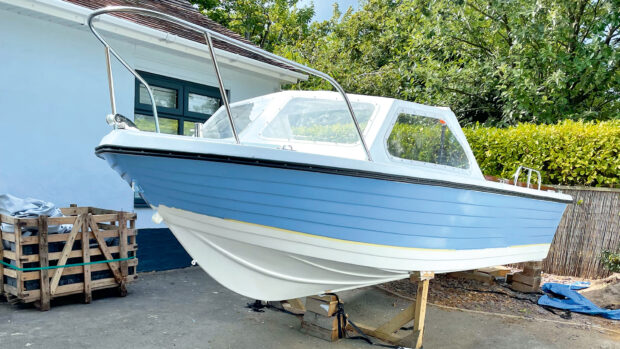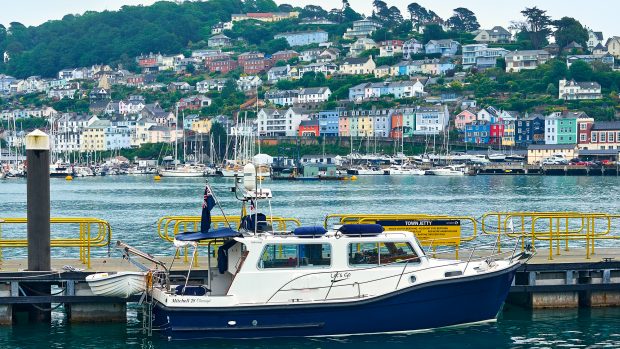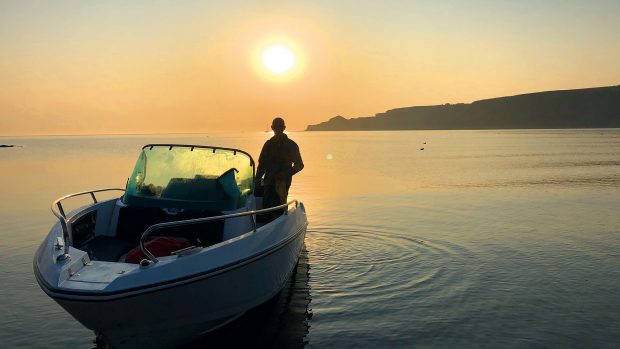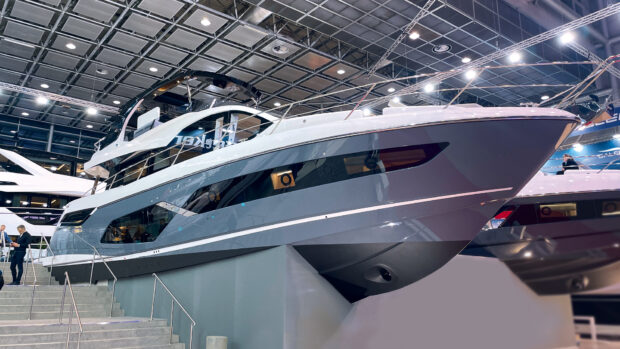British Marine CEO Lesley Robinson talks us through the environmental challenges and opportunities that lie ahead for the UK’s marine industry
There is rarely a day that goes by where the threat of climate change and our responsibility to the planet is not in the news and it will no doubt be the issue that defines the next decade. We are all accountable for leaving the planet in a state that future generations can enjoy and the marine industry is no exception.
Boat users are becoming increasingly aware of their responsibility to protect our waters and as a result are seeking more environmentally-friendly designs, products and experiences. At British Marine, we know it is incumbent on us to support member companies to meet these changing consumer demands and transition to a cleaner, more sustainable future.
The environment is a key part of our National Agenda at British Marine and directs much of our day-to-day activity. Last year we strengthened our Environmental Pledge at the Southampton International Boat Show by introducing eco-friendly policies on plastics, paper, catering, recycling, travel and education and launching our new Exhibitor & Contractor Environmental Charter.

Volunteers cleaning up Weston Shore beach ahead of Southampton International Boat Show 2019
More widely, through our consumer facing joint initiative with the Royal Yachting Association, The Green Blue, we’ve helped boat users and marine businesses manage their environmental impact through awareness and research.
Following the growing trend towards using greener products, The Green Blue recently launched a directory, which can advise boat owners on the most eco-friendly products. These range from marine cleaning products using plant extracts, to rope made from recycled bottles. I’m proud that as the voice of the marine industry we are leading by example to preserve and protect our waters, offering consumers the choice to use greener and more sustainable products.
This consumer demand for greener products is something I can see motivating much of the activity of our members. One of the benefits of my role is seeing for myself the great work our members are doing to use technology to reduce their environmental impact, showing how we can have a real impact when we work together.
From the Lignia Wood Company, which sources its products from sustainable managed softwood plantations, to industry giants Princess Yachts’ partnership with the Marine Conservation Society initiatives to safeguard both UK waters and specific projects across the world, I am constantly impressed by the new projects and products making waves in the sector.
As we look to the future, the best way to continue to make progress is to learn from our peers and partners from other industries. I have seen first-hand the benefit of collaborating with other industry associations, many of whom are ahead of us in developing technology that our sector could really benefit from.
Article continues below…

Equal Pay Day: The state of gender equality in the maritime sector

Silent Yachts 55: Liveaboard test of this future-proof electric catamaran
£1730000
That is why at British Marine we recently launched a partnership with the Motorsport Industry Association (MIA), to bring our sectors together to share efficient experiences and technical solutions. We’re already seeing the positive impact of this partnership with a joint venture between members working in the field of hydrogen propulsion – something that has the potential to make a huge difference to how we make boats in the future.
RS Electric Boats is another member leading the way with green innovation. It recently launched its electric RIB, the Pulse 58, the first-ever production RIB with a fully integrated electric drive. [ed. Pick up this month’s issue of MBY for more on the Pulse 58.]
Spirit Yachts are another inspiring member responding to shifting consumer demands. Last year it launched the Spirit 111, one of the most environmentally friendly sailing superyachts ever built by working collaboratively with leading marine and automotive suppliers. Using electric propulsion to recharge the batteries whilst sailing, the yacht can operate for up to four days without having to plug into shore power or start the two onboard generators.
I hope that through initiatives such as these we can support and challenge each other to innovate and move forward.
But while these industry initiatives are encouraging, we still have work to do. Over the coming years the Government’s Clean Maritime Plan will present opportunities and challenges for businesses in the sector. Any damage to our oceans is a serious threat to future generations and with global marine and shipping emissions contributing more than 2% of global greenhouse gas emissions, we must play a leading role in reducing this.
Rather than view environmental regulation as a necessary evil, I would like to see a race to the top. The eco-demands of boat users in 2020 are here to stay and there has never been a more important time to embrace new and exciting technologies, look after our oceans and make sure future generations can enjoy getting out on the water.
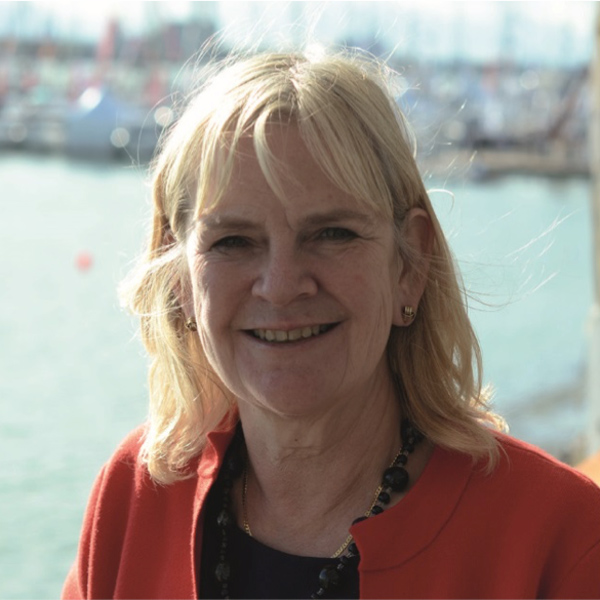
About the author
Lesley was appointed CEO of British Marine in mid-2018. Prior to joining, Lesley was Managing Director at MDL Marinas, Europe’s leading Marina operator. Previous to this, her commercial career has spanned leisure, consumer goods, media and IT and she was also a Director of the Money Advice Service, leading corporate services and heading up the Service’s debt advice programme in the UK.



